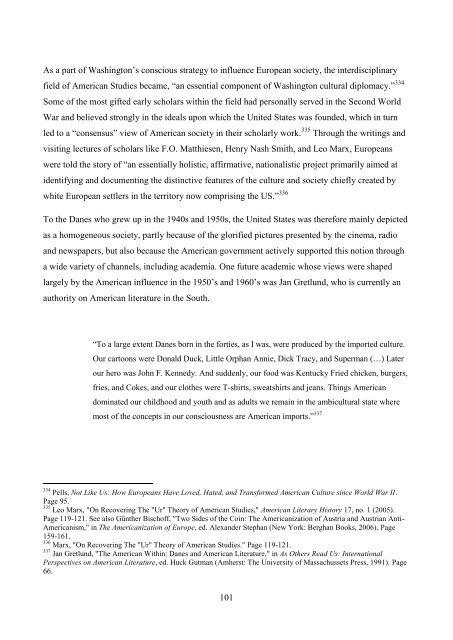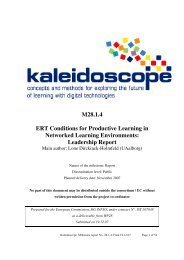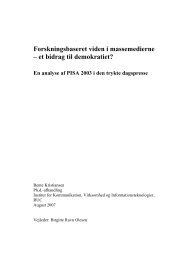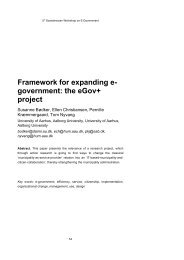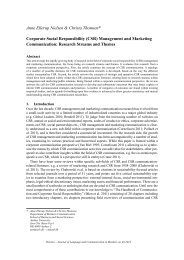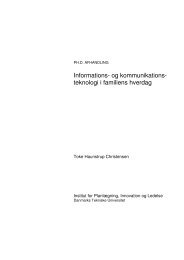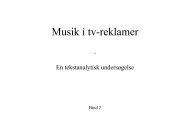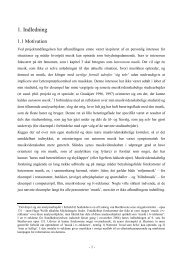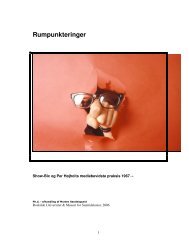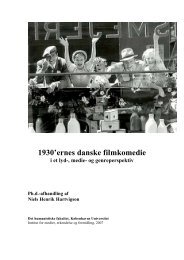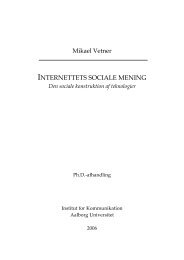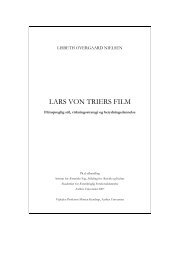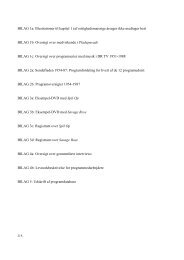The Jeremiad Over Journalism
The Jeremiad Over Journalism
The Jeremiad Over Journalism
You also want an ePaper? Increase the reach of your titles
YUMPU automatically turns print PDFs into web optimized ePapers that Google loves.
As a part of Washington‘s conscious strategy to influence European society, the interdisciplinary<br />
field of American Studies became, ―an essential component of Washington cultural diplomacy.‖ 334<br />
Some of the most gifted early scholars within the field had personally served in the Second World<br />
War and believed strongly in the ideals upon which the United States was founded, which in turn<br />
led to a ―consensus‖ view of American society in their scholarly work. 335 Through the writings and<br />
visiting lectures of scholars like F.O. Matthiesen, Henry Nash Smith, and Leo Marx, Europeans<br />
were told the story of ―an essentially holistic, affirmative, nationalistic project primarily aimed at<br />
identifying and documenting the distinctive features of the culture and society chiefly created by<br />
white European settlers in the territory now comprising the US.‖ 336<br />
To the Danes who grew up in the 1940s and 1950s, the United States was therefore mainly depicted<br />
as a homogeneous society, partly because of the glorified pictures presented by the cinema, radio<br />
and newspapers, but also because the American government actively supported this notion through<br />
a wide variety of channels, including academia. One future academic whose views were shaped<br />
largely by the American influence in the 1950‘s and 1960‘s was Jan Gretlund, who is currently an<br />
authority on American literature in the South.<br />
―To a large extent Danes born in the forties, as I was, were produced by the imported culture.<br />
Our cartoons were Donald Duck, Little Orphan Annie, Dick Tracy, and Superman (…) Later<br />
our hero was John F. Kennedy. And suddenly, our food was Kentucky Fried chicken, burgers,<br />
fries, and Cokes, and our clothes were T-shirts, sweatshirts and jeans. Things American<br />
dominated our childhood and youth and as adults we remain in the ambicultural state where<br />
most of the concepts in our consciousness are American imports.‖ 337<br />
334<br />
Pells, Not Like Us: How Europeans Have Loved, Hated, and Transformed American Culture since World War II.<br />
Page 95.<br />
335<br />
Leo Marx, "On Recovering <strong>The</strong> "Ur" <strong>The</strong>ory of American Studies," American Literary History 17, no. 1 (2005).<br />
Page 119-121. See also Günther Bischoff, "Two Sides of the Coin: <strong>The</strong> Americanization of Austria and Austrian Anti-<br />
Americanism," in <strong>The</strong> Americanization of Europe, ed. Alexander Stephan (New York: Berghan Books, 2006). Page<br />
159-161.<br />
336<br />
Marx, "On Recovering <strong>The</strong> "Ur" <strong>The</strong>ory of American Studies." Page 119-121.<br />
337<br />
Jan Gretlund, "<strong>The</strong> American Within: Danes and American Literature," in As Others Read Us: International<br />
Perspectives on American Literature, ed. Huck Gutman (Amherst: <strong>The</strong> University of Massachussets Press, 1991). Page<br />
66.<br />
101


